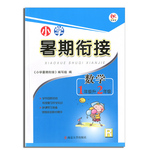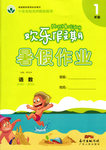题目内容
B. whom, get along with
C. who; talk
D. whom; talk with

 波波熊暑假作业江西人民出版社系列答案
波波熊暑假作业江西人民出版社系列答案 学而优暑期衔接南京大学出版社系列答案
学而优暑期衔接南京大学出版社系列答案 Happy holiday欢乐假期暑假作业广东人民出版社系列答案
Happy holiday欢乐假期暑假作业广东人民出版社系列答案
| |||||||||||||||||||||||||||||||||||||||||||||||||||||||||||||||||||||||||||||||||||||||||||||||||||||||||||||||||||||||||||||||||||||||||||||||||||||||||||||||||||||||||||||||||||||||||||||||||||||||||||||||||||||||||||||||||||||||||||||||||||||||||||||||||||||||||||||||||||||||||||
A long time ago, there was an emperor. One day he told his horseman that if he could ride on his horse and 1 as much land area as he liked, he would give him the area of land he had covered. 2 enough, the horseman quickly jumped onto his horse and 3 as fast as possible to cover as much land area as he could. He 4 riding and riding, whipping the horse to go as fast as possible. Even when he was 5 and tired, he did not stop 6 he wanted to cover as much area as possible. When he at last covered a large amount of land, he was exhausted and was 7 . Then he asked himself, “Why did I 8 myself so hard to cover so much land area? Now I am dying and I only 9 a very small area to 10 myself.”
The above story is 11 to the journey of our 12 . We push ourselves very hard every day to make more 13 , to gain power or recognition. We neglect our 14 , time with our family and to appreciate the surrounding 15 and the things we love to do. One day 16 we look back, we will 17 that we don’t really need that much, 18 then we cannot turn back time for what we have 19 .
Life is not about making money. Life is definitely not about work! Work is only 20 to keep us living so as to enjoy the beauty and pleasures of life.
| 【小题1】 |
|
| 【小题2】 |
|
| 【小题3】 |
|
| 【小题4】 |
|
| 【小题5】 |
|
| 【小题6】 |
|
| 【小题7】 |
|
| 【小题8】 |
|
| 【小题9】 |
|
| 【小题10】 |
|
| 【小题11】 |
|
| 【小题12】 |
|
| 【小题13】 |
|
| 【小题14】 |
|
| 【小题15】 |
|
| 【小题16】 |
|
| 【小题17】 |
|
| 【小题18】 |
|
| 【小题19】 |
|
| 【小题20】 |
|